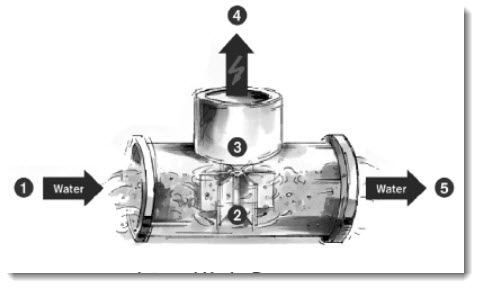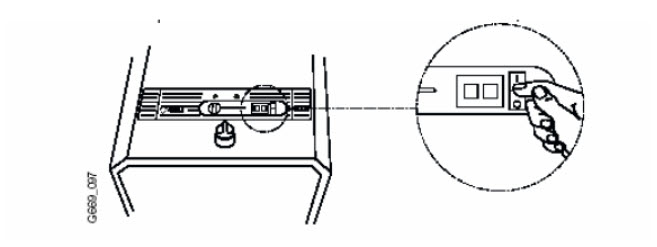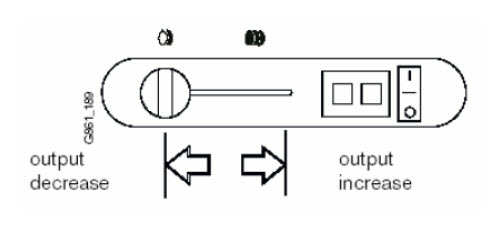Product Overview
HydroPower Ignition is exclusive to Bosch. HydroPower uses the energy created by water flow to ignite the burner and begin the heating process.
The unit only starts when a hot water tap is opened. Once hot water is no longer needed, the unit turns itself off.
- Water enters the Hydro Dynamic Generator

- The turbine spins with water flow
- A spark is generated by the turbine
- The spark ignites the main burner
- The water continues on to the heat exchanger and is heated
External HydroPower
External HydroPower models are perfect for a constant, reliable supply of hot water. The HydroPower ignition provides endless hot water at the flick of a tap, without the need of power point.
Versatile
- LPG models are particularly popular in country areas, where reticulated gas is not available and there is no external power point.
- They are able to operate in relatively low water pressure areas and in low temperature regions of Australia and New Zealand using Bosch accessories. Economical
- Only heating water when required by the user, the Bosch range is extremely economical to run.
Internal HydroPower
Limited space need not mean limited hot
water. The Bosch range of internal hot water
heaters are created specifically to go places
where storage units will not, and will provide
endless hot water.
Versatile
· Operable without a power point
· Compact design
· Flexible connections
· Caters for a wide range of applications and
needs
Economical
· Only heating water when required by the
user, the Bosch range is extremely
economical to run.
Operating Instructions
After installation, purge all water and gas pipes before operating.
Adjust appliance with only one tap operating.
Starting and shutting off the appliance
To switch the appliance on, turn the on/off switch to position “1”
To shut off the appliance, turn the on/off switch to position “0”
Green light on = Main burner on
Green light off = Main burner off
Red light flashing: Fault Indication
Output control
Water Flow Adjustment
Turn anti-clockwise Water flow increases, temperature diminishes
Turn clockwise Water flow decreases, temperature increases.
Warning
If the appliance does not operate, burns with yellow flame, leaks water or a gas smellis evident, turn off and contact the local gas authority, the manufacturer or anauthorised service person.
Freezing Weather
In areas where the atmospheric temperature may drop below 0°C the heater may be
drained to prevent damage by expansion of freezing water. For appliances installed in locations where the temperature falls below 0°C and not less than -2°C for brief periods, the installation of an EXOGEL expansion valve, part number H707 060 151, will minimise the possibility of damage to the appliance.
This water heater MUST NOT be installed in areas where the temperature remains
below 0°C for extended periods.
CAUTION: It is recommended that for sanitary fixtures used
primarily for the purpose of personal hygiene that a temperature
control device be fitted (such as a tempering valve) as per
AS.3498
Trouble Shooting
| Symptom | Possible Cause | Solution |
| Appliance does not light | Switch turned off Hydrogenerator Jammed Low Water Flow |
Turn switch on Clean hydrogenerator Increase water flow >3.5 litres per minute |
| Smell of gas | Gas Leak | Locate leak with soap solution |
| Low burner flame, water does not heat up. |
Low inlet gas pressure Low burner pressure Low water flow |
Check supply regulator and pipe size. Check appliance regulator Check water flow rate Move slide control to high |
| Low water temperature | Water flow selector in warm position Low Gas pressure Cross connection |
Set flow rate to individual need. Check gas pressure Disconnect hot outlet with cold off. |
| Low water flow | Low water pressure Blocked water valve Blocked shower rose or tap aerator |
Check and adjust Clean filter Clean |
Care and Servicing of the Unit
We recommend that the appliance be inspected and cleaned by an authorised
person periodically, depending on the frequency and duration of its operation, but
never less than once in a two year period.




